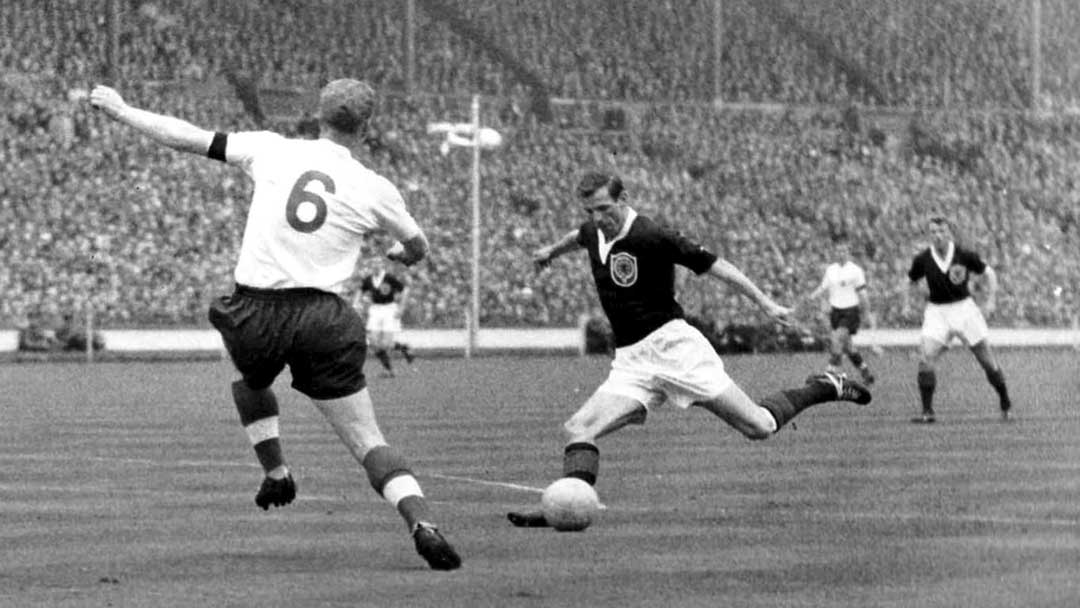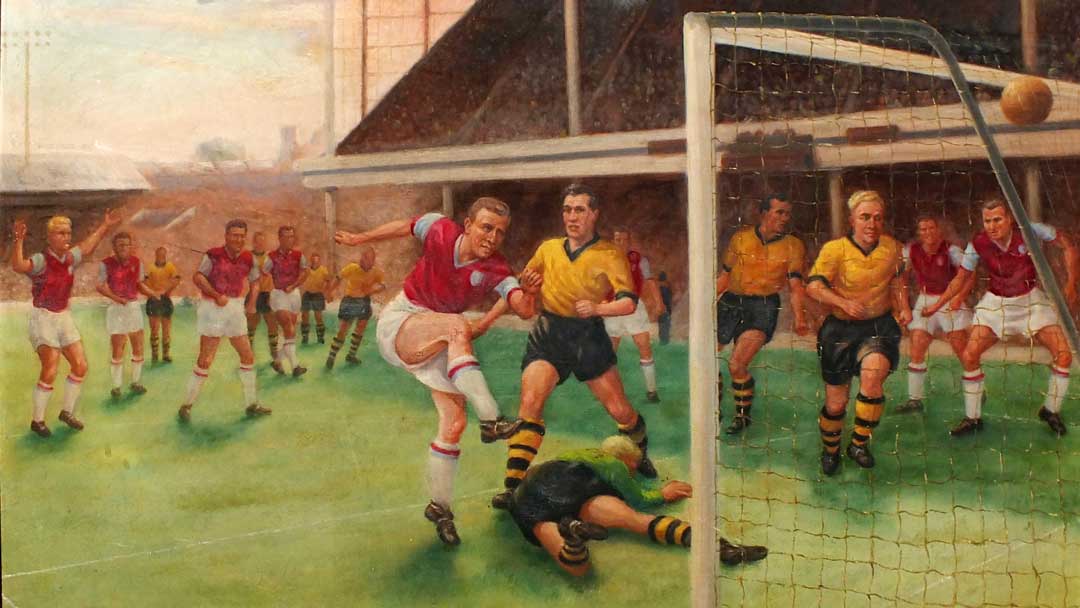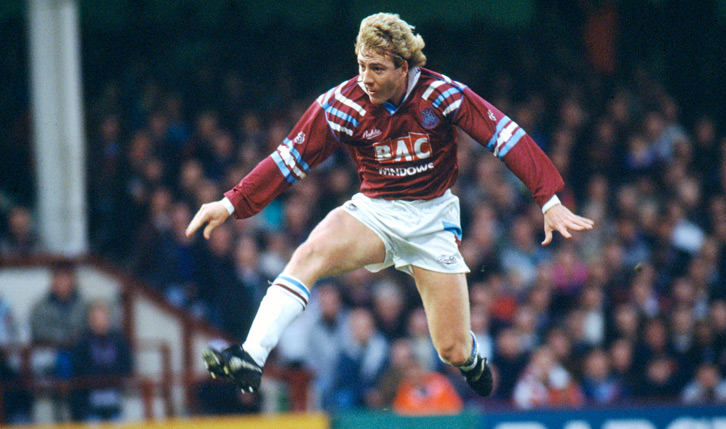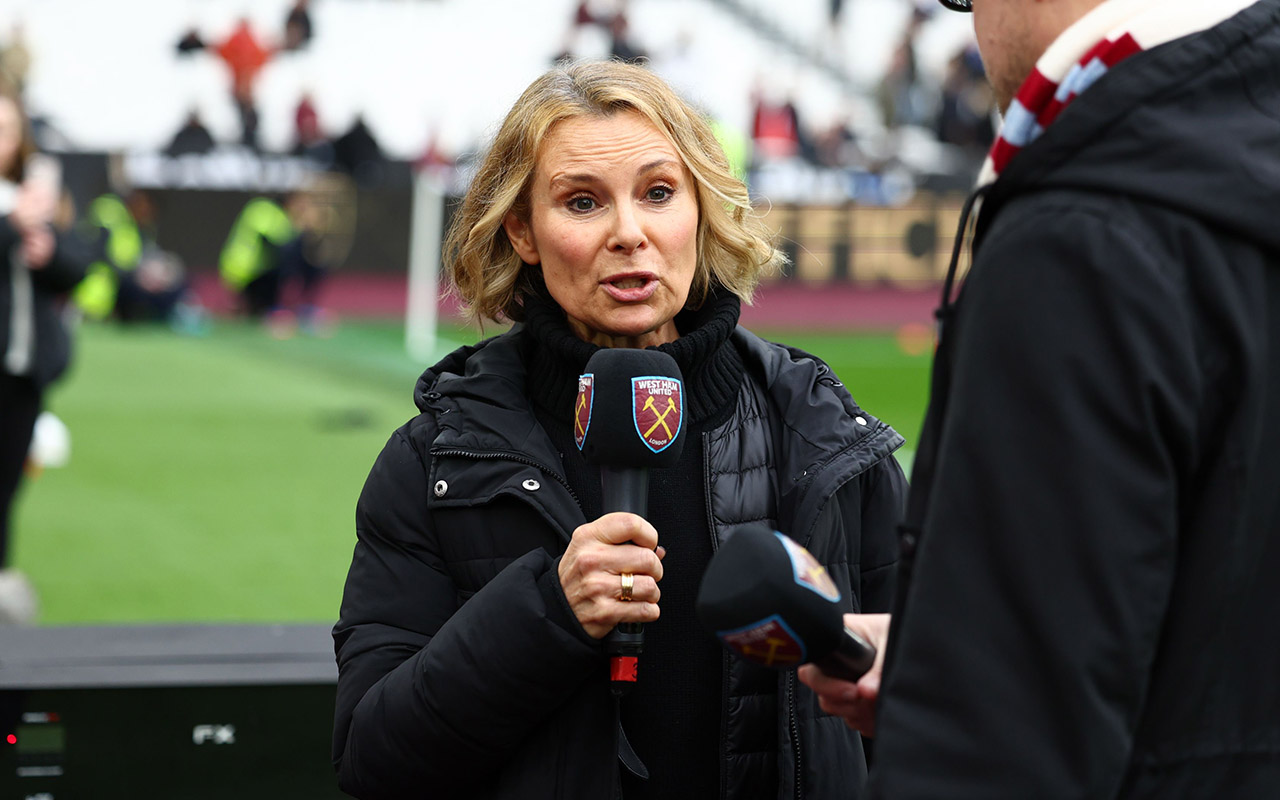Historian Steve Marsh looks back on a big moment in West Ham United history – the birth of super Scottish striker John Dick...
One of the most prolific goal scorers in West Ham United’s history was born 93 years ago today, on 19 March 1930.
John Hart Dick sits in third place in the all-time Hammers goal charts with 177 goals, behind only Victor Watson on 326 and 1966 FIFA World Cup winner Geoff Hurst with 249.
Born in Govan, a district of Glasgow, Scotland on 19 March 1930, the schoolboy footballer gained representative honours and later as a player in 1950 with Maryhill he was awarded a Scottish junior cap. Like all players of his generation, Army National Service would interrupt his football progression. The native Scotsman was posted south of the border at the Colchester Garrison in the Corps of Royal Electrical and Mechanical Engineers.
While stationed in Essex, he received an award for services to Army football, and when time allowed he would turn out for the local amateur works team of the Crittall Window Company in the Eastern Counties League, Crittall Athletic FC (now Braintree Town FC).
In December 1952, he came to the notice of the Hammers when he opposed our ‘A’ Team in two league fixtures. Outstanding performances in both games by the lanky forward were enough to earn him an trial invitation for the Irons in a London Mid-Week League against Fulham at Craven Cottage on 19 February 1953. For the remainder of the season, Dick alternated his playing time between the two clubs, and after a further three outings and a goal for the Hammers and having won a cup medal with Crittall Athletic, he was discharged from the Army and returned to Scotland.
Manager Ted Fenton must have seen enough potential in the 23-year-old, though, and despite a number of offers to join clubs in both England and Scotland he chose to put pen to paper on an amateur career with the east Londoners on 15 May 1953. The Glaswegian made his League debut in the 5-0 thrashing of Lincoln City at Upton Park on the opening day of the 1953/54 season. However, the inside-left initially struggled to find his goal scoring boots, having to wait until his 13th league appearance before he hit the net away to Derby County.
That goal kick-started his campaign the naturally left-footed marksman got off the mark with a vengeance as he netted eleven times in four months and was chosen by the Scottish selectors for the ‘B’ international against England on 3 March 1954. Unfortunately, under the floodlights at Sunderland’s Roker Park he received a leg injury and did not play to his full potential which hampered his chances of gaining a full international cap in the foreseeable future.
It was a moderate beginning to the 1957/58 campaign for both the Hammers and Dick, as he failed to register a single goal in the first 12 games. With only five wins Ted Fenton’s side were sitting 12th in the table.
However, the Hammers’ fortunes were about to change after the record signing Vic Keeble joined from Newcastle United in the middle of October.
The pair instantly formed a formidable goalscoring partnership. Keeble netted on his League debut and in the next match Dick notched his first of the season against Rotherham United before going on to set a new post-war record by scoring in seven consecutive games, comfortably beating the previous best of five goals held jointly by Joe Payne (1946-47), Bill Robinson (1950-51) and team-mate Malcolm Musgrove (1954-55).

Dick’s consecutive scoring run straddled four wins and three draws in West Ham’s season’s best undefeated run of 13 Second Division games. The pair notched up 40 goals between them on their way to winning promotion at the end of the season.
The following campaign, Dick scored the Hammers’ historic first goal at Upton Park on their return to the First Division after a 26-year absence, against Wolverhampton Wanderers.
Twenty-five goals later he was also rewarded by the Scotland selectors with a senior cap, thus becoming the first West Ham United player to be capped at full international level by the Tartan Army when he lined up against England at Wembley in April 1959.
Dick remained at the Boleyn Ground for the best part of a decade, making 367 appearances and scoring 177 goals. He transferred to Brentford in September 1962 for a fee of £13,000 and continued to knock in the goals, netting 45 in 72 appearances before joining Southern League Gravesend.
He later returned to east London in the early 1970s to help run the Hammers’ junior side.
John Dick died on 27 September 2000, aged 70.




